Croatian Olympic Committee Bids Farewell to Athletes Going to Tokyo!
July 12, 2021 - The Croatian Olympic Committee held a farewell ceremony in Zagreb for the athletes departing to Tokyo.
As the first large group of Croatian athletes departs for the Olympic Games in Tokyo, the Croatian Olympic Committee (COC) traditionally organized a farewell ceremony for the Olympians and those who will become Olympians.
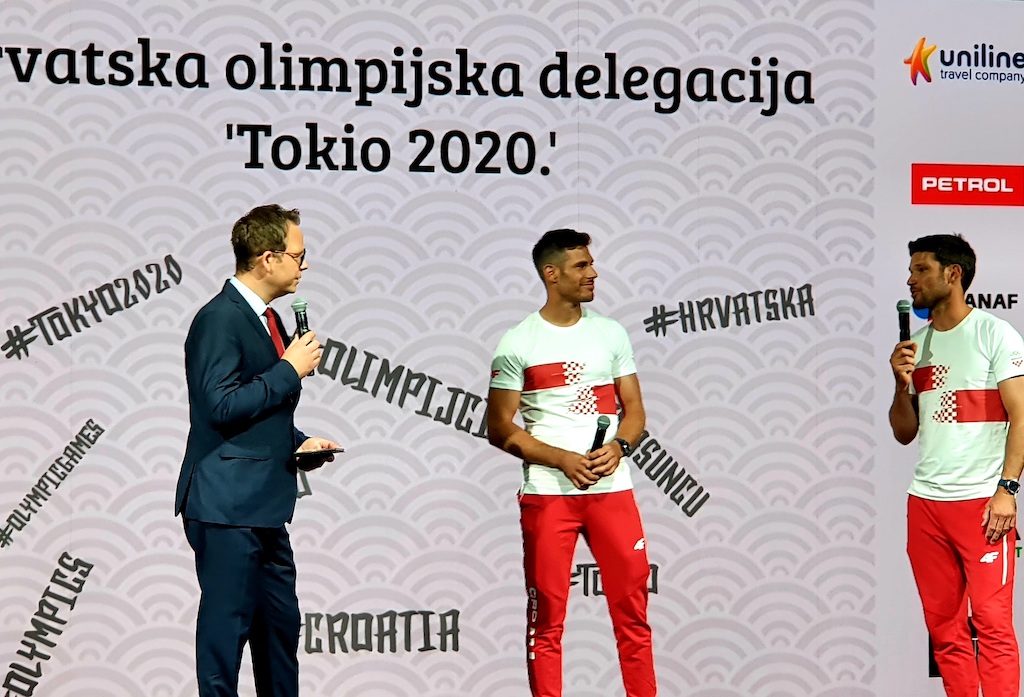
Slobodan Kadic
The ceremony was held on Monday, July 12, 2021, at 13.30 in the Crystal Hall of The Westin Hotel in Zagreb, the same hall where at the end of each year, the Croatian Olympic Committee proclaims and awards the country's sports heroes over the past 365 days.
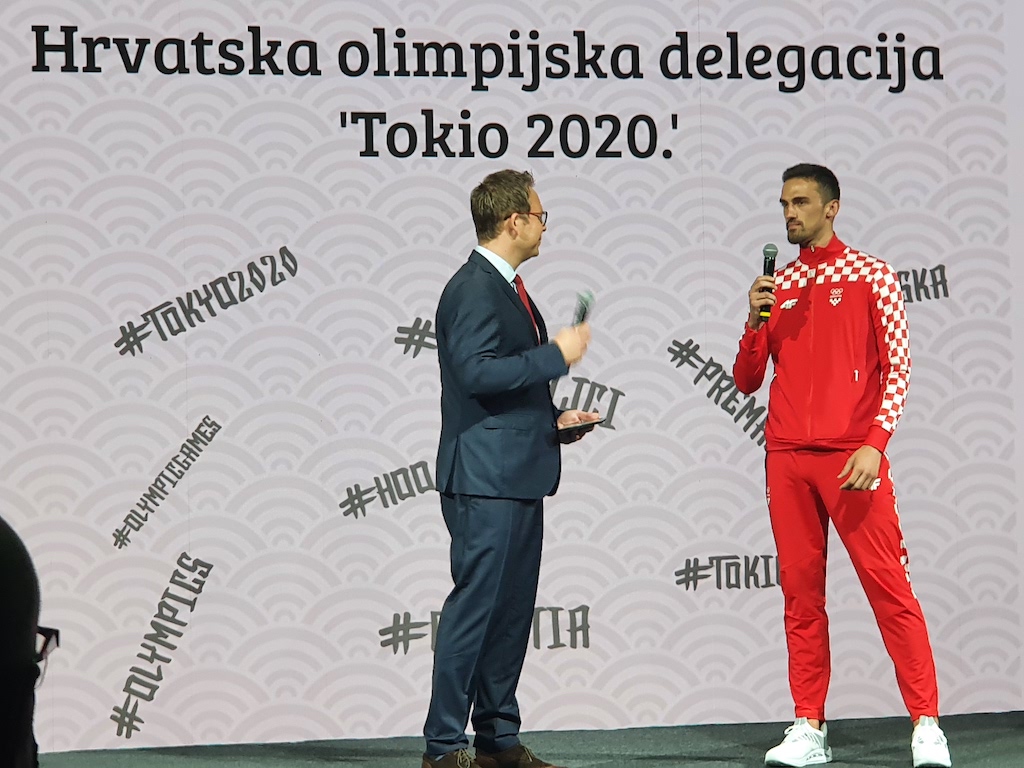
Slobodan Kadic
In addition to athletes (Barbara Matić, Karla Prodan, Ivana Maranić, Damir Martin, Valent, and Martin Sinković, Šime and Mihovil Fantela, Elena Vorobeva, Toni Kanaet, Matea Jelić, Ivan Šapina, Kristina Tomić) and their coaches, the ceremony was attended by numerous sports dignitaries: Minister of Tourism and Sports Nikolina Brnjac, IOC member from Croatia Kolinda Grabar-Kitarović, and Ambassador of Japan to Croatia HE E. Misako Kaji.
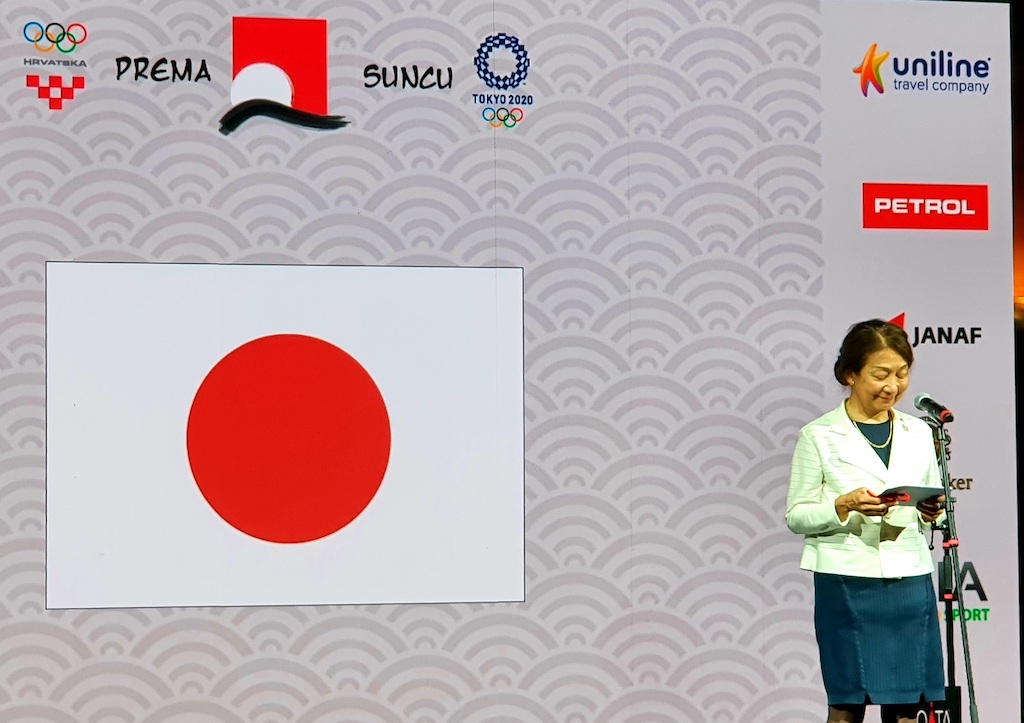
Slobodan Kadic
The host of the event is the president of the Croatian Olympic Committee, Zlatko Mateša, and the general secretary Siniša Krajač. Thanks to Sports Television (SPTV), sports fans from all over Croatia could see the event live.
After the official confirmation from the Croatian Athletics Federation (HAS) that high jumper Ana Šimić and discus thrower Marija Tolj have been included in the list of athletes who will perform at the Olympic Games in Tokyo (July 23 - August 8, 2021), the Office for the Olympic Program of the Croatian Olympic Committee (COC) published the final list of Croatian Olympic hopes.
The list includes 58 athletes from 15 sports. However, there is only one team among them - the water polo team, which has the right to register 12 players and one reserve.
The number of athletes for the Olympic Games in Tokyo is the lowest since the premiere performance of Croatian Olympians under their own flag - in Barcelona in 1992 when there were 41 of them from 12 sports. The record is still held by the London 2012 Games, with 107 athletes from 18 sports.
To follow the latest sports news in Croatia, follow TCN's dedicated page.
To learn more about sport in Croatia, CLICK HERE.
Zagreb Digital Nomad Week, the Video by Hashtag Content Agency
July 12, 2021 - A lovely overview of last month's Zagreb Digital Nomad Week 2021 talking to many of those who took part in the inaugural event, by Hashtag Content Agency.
It is a couple of weeks since the end of the first Zagreb Digital Nomad Week, an intense, diverse and very stimulating 7 days in the Croatian capital, covering 7 different themes (cybersecurity, online presence, remote careers, tax & finance, future of work, wellbeing, and exploring Zagreb) in 7 locations over 7 days.
While the idea of showcasing the city from a range of different viewpoints sounded enticing, the logistics of such a plan were demanding. Coordinating with the different locations, ensuring technical checkups for the next day, and hundreds of other small details. All to be done in one of the hottest weeks of the year.
In the end, the week went almost perfectly, and participants got to see so many different facets of this beautiful city and its surroundings in a very short space of time.
One of the undoubted heroes of the week was Nick Hathaway of 45 Degrees Sailing and Hashtag Content Agency, who managed to rise to the considerable technical challenges thrown at him throughout the week. Despite several major constraints, Nick and his team were able to produce a high quality service which was also streamed live to the Internet and which lives on on the Zagreb Tourist Board YouTube channel.
Rather than choosing sleep for the few hours when he was not working on the technical difficulties, Nick ran around the various stakeholders and participants in the week to put together this excellent vlog of the week away from the presentations. A visit to some of the venues, but more catching up with the people involved in different parts of Zagreb to find out their impressions of the city and what they think makes it so special.
An accomplished vlogger, Nick's keen eye adds some great footage of Zagreb - a really great effort and a good reflection of the positive energy of the week. Check out the video above.
For more on Zagreb Digital Nomad Week 2021 & Zagreb Digital Nomad Ambassador Project, visit the Saltwater Nomads website.
Would you like to be a Zagreb Digital Nomad Ambassador? Applications are open until November, with the last ambassador taking up residence on December 1. Find out more here.
For the latest news and features about digital nomads in Croatia, follow the dedicated TCN section.
Zagreb Grič Cannon: Explosive Noon Reminder
July 9, 2021 - Zagreb Grič Cannon - a reminder of noon, and a reason to avoid the centre if you aren't a fan of loud sounds. Get your noise-canceling headphones and read about the cannon's history, courtesy of TCN reporter Ivor Kruljac.
If you find yourself walking around a wider Zagreb centre (such as Savska Cesta or Marin Držić Avenue) around noon, and you focus on the sounds of the city, you may notice a weird sound in between traffic and people passing. An unusual sound, as if someone dropped a heavy box. But, if around noon, you find yourself at Ban Jelačić square or upper town, you will hear a clear and loud BANG! Fear not, as this is not a terrorist attack, and you weren't lied to when your tourist agency swore to god Zagreb is safe from such horrors. The heart-stopping bang is a signifier of noon. If you hear a boom at 11:59 or 12:01, your watch is behind a minute. The cannon states that clear and very, very loud.
Loudest time checker you could think of
Grič cannon first started signaling noon on January 1, 1877, and was located at the State's Meteorology department, back in times when Croatia was part of the Austrian-Hungarian Monarchy. It wasn't until 1927 that it was moved to Fort Lotršćak where it is situated today.
According to the Klovićevi Dvori Gallery's official website, Fort Lotrščak was named after a bell and comes from campana latrunculorum, which is Latin for „Bell of Thieves“ that rang before closing city gates. Historians aren't exactly sure what the Fort looked like in medieval times, although it is speculated based on old sketches that it had only two floors. It wasn't until 1857 that romanticistic architecture gave the fortress today's four floors and an additional tower at the very top (from which you have a breath-taking view of Zagreb today).
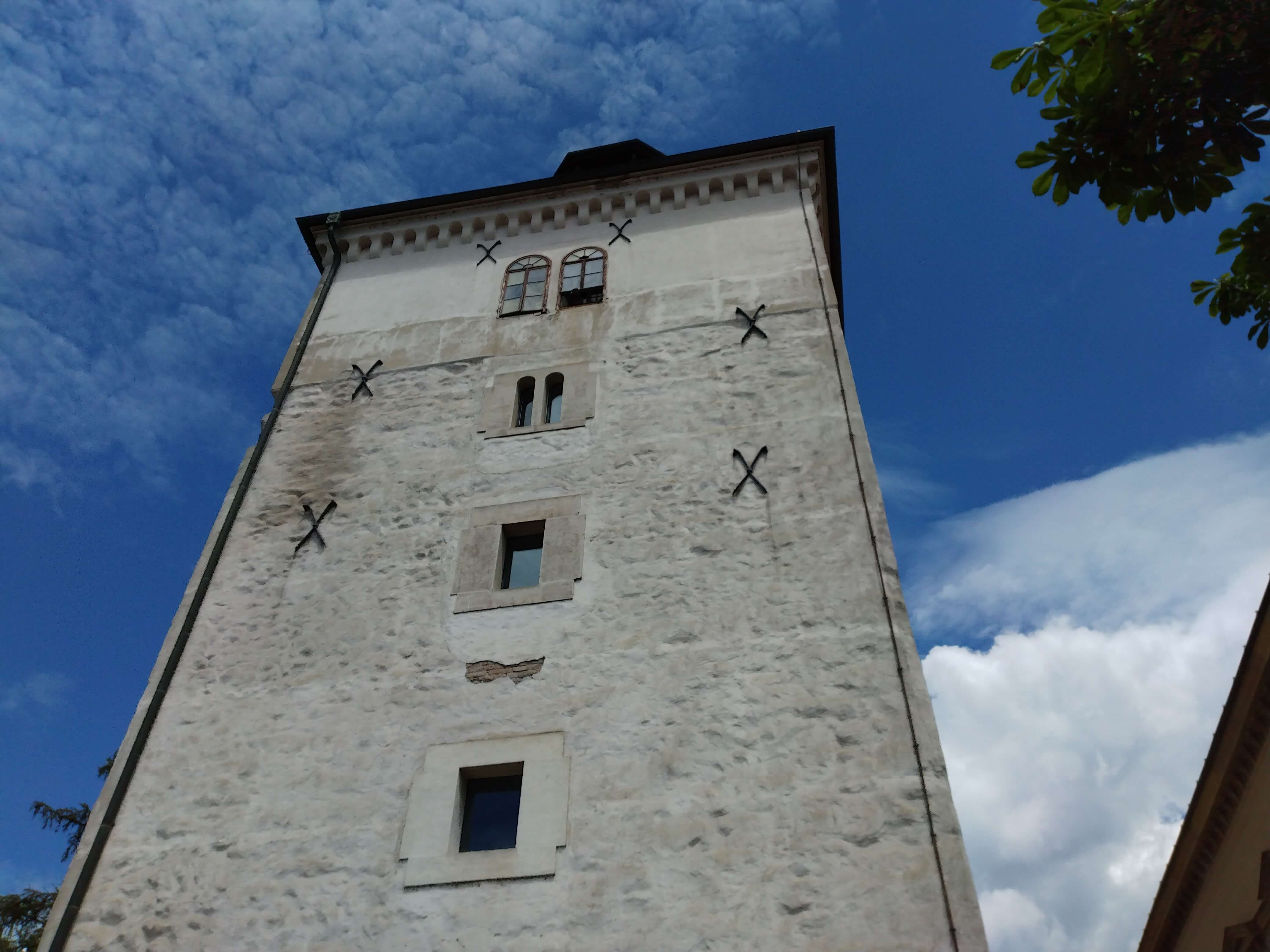
Fort Lotrščak © Ivor Kruljac / Total Croatia News
In the 17th century, the Fort served as trading storage and had various other ways to adapt to the need of Zagreb and Zagreb's citizens at different times. At one point, when the City was out of money to restore and repair the Fort, it gave Lotrščak to citizens for rent. Citizens who wanted the Fort also had the obligation of maintaining it, and in case of enemy assault, it was to be returned back to the City for defense purposes.
Warning shot
Speaking of defense purposes, an old legend says how this cannon managed to save Zagreb with a single shot from the Ottoman conquerors. Legend has it that the Ottoman commander Hasan Pasha (Hasan Paša) settled his army at the coast of the Sava river, in today's area of Novi Zagreb. He was preparing to cross the river and invade the city. But before that, he was about to have lunch one day, and Zagreb fired from the cannon in the Ottoman's direction, close to Hasan and blasting a chicken he wanted to eat. The shot scared the hell out of the Ottomans and they retreated, leaving Zagreb intact.
Changing arsenal
Over the course of time, there were five different Grič cannons that served the purpose of signaling noon. The current canon was given during Zagreb's Univerzijada in 1987, courtesy of the Yugoslavian National Army (JNA) as Croatia at the time was part of the Socialist Federal Republic of Yugoslavia (SFRJ).
As for the first three, you can find them today in the collection of the Zagreb City Museum. The first cannon originated in 1876 and was replaced by the second cannon in the unidentified year at the end of the 19th century. The third cannon you can see in Zagreb City Museum, and the first that was situated on Lotrščak fort, was introduced in 1928, and it was made by restoring a Polish cannon from 1912.
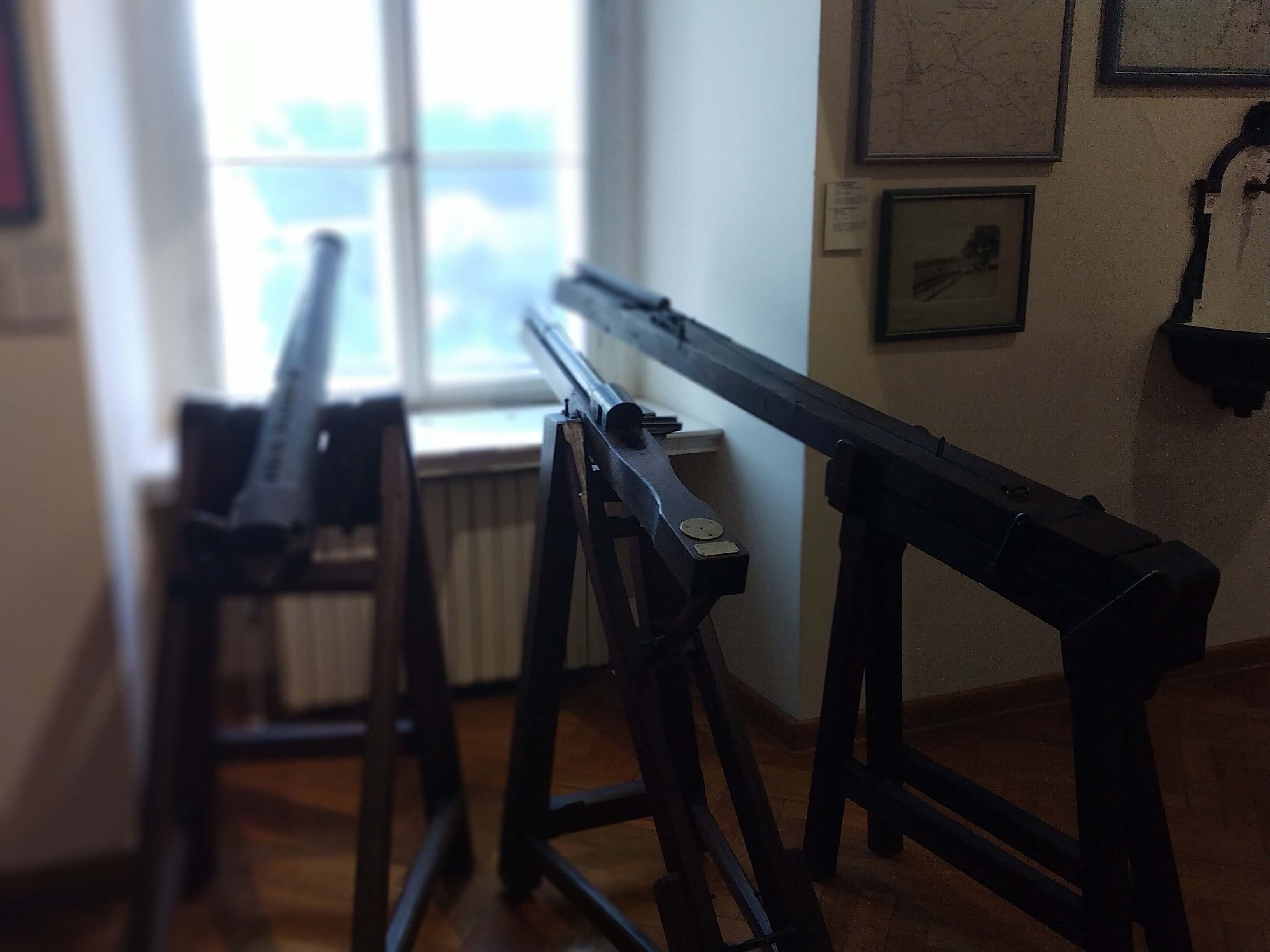
Three cannons showcased at Zagreb City Museum © Ivor Kruljac / Total Croatia News
So finding yourself in front of Fort Lotrščak (whose entrance is located right next to the Upper town funicular station) is not recognizable if you are not a fan of loud noise as it can give you a sound fright even down below at Jelačić square and the surrounding area. But, for the brave ones, the Grič cannon can provide a unique souvenir from Zagreb. It doesn't use live ammo (the cannon is modified so it can't), but it does fire several pieces of thick cardboard that then flies down to the area underneath Lotrščak's entrance and smelling like gunpowder.
Ceased fire
Despite being a regular background sound for the experience of living in Zagreb, Grič cannon went through periods when it ceased fire and stopped making statements. The first such instance was World War I and then followed by the war in the nineties. Most recently, the cannon was silenced after the Zagreb earthquake on March 22, 2020, but it re-fired hot and heavy sometimes in May 2020. However, followed by the December 29th Petrinja earthquake, which was also felt heavy in Zagreb, the cannon is silent even today.
„We are not quite sure when it will re-fire“, briefly commented the Zagreb Tourist Board member that welcomed me in Fort Lotrščak, one of the locations where Zagreb TB has a regular stand. Still, despite the cannon being silenced, you can climb and sightsee Lotrščak, the famous cannon as well as the watchtower on top of the Fort, for the prize of 20 kunas.
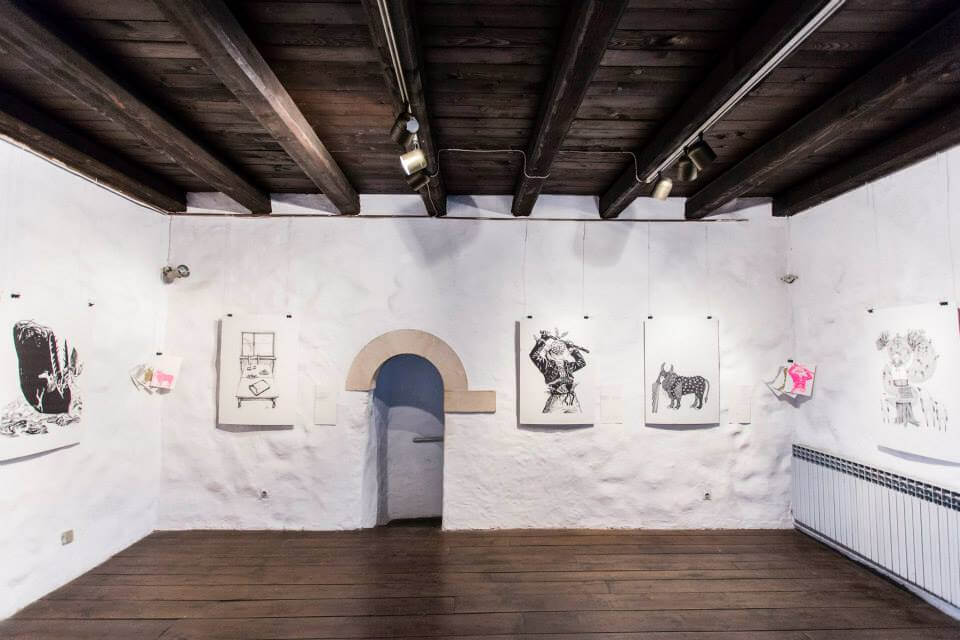
One of the exhibitions at Lotrščak © Kula Lotrščak
The Lotrščak Fort address is Tomićeva 9, and the Fort occasionally also hosts various exhibitions at times too. But, the cannon is a regular feature, and there are lots of info on the history of the cannon and the Fort itself there too on the walls- both in English and Croatian.
Learn more about Zagreb on our TC page.
For more about history in Croatia, follow TCN's dedicated page.
Rimac: Robotaxis Will Be Driving in Zagreb in 2024
ZAGREB, 8 July 2021 - The owner of Rimac Automobili, Mate Rimac, said on Thursday that his company is developing a project for autonomous vehicles, robotaxis, and that the first ones if the project is a success, could be tested in Zagreb streets in 2024 already.
He underscored that at the start of next year he would present the robotaxi, a driverless vehicle, to the public. He added that the Nevera model is now completing homologizing and testing and that soon it will be put into serial production. The robotaxi project should be much larger than Rimac Automobili.
"This is something with big potential. A robotaxi prototype has been made, our guests saw it today, however, we have to bring it to a higher level and present it as it should be, probably at the start of next year. The idea is that in 2024 we launch that autonomous vehicle on Zagreb's streets. If we don't succeed with that project, all the money that we invested and will invest will fall through, and that's hundreds of millions. Our objective is to do that by 2024, together with all the necessary infrastructure," said Rimac.
Rimac reiterated that his company has still not succeeded, that success is yet to come, but said that it is going towards that with 1,000 employees and more than €200 million in investment attracted and many more investment to come.
"And that is an investment in development, employment, and production in Croatia that is exported to the entire world. It was a big thing for us to take over Bugatti, a company that has been in business for more than 110 years. That is a big responsibility. For the first time in history, VW has divested a brand from its portfolio," underscored Rimac, adding that VW is the biggest company in Europe with annual revenue of €250 billion.
Bugatti is a successful company but Rimac Automobili wants to make it even more successful, he said.
"It's not true that Bugatti is a hot potato. They are successful. In the past three years, they have been profitable. They sell 90 vehicles a year and have a revenue of about €300 million," he underscored and added that the VW Group agreed to the transaction because it believes that Rimac Automobili has the technology and right approach for something like that.
In that regard, he explained how Porsche had brought its Panamera prototype to Rimac Automobili and said that it had three months to show how the vehicle can be improved. "Within the same battery dimensions and same mass, we created a vehicle that has twice the range and twice the battery capacity," said Rimac.
For more made in Croatia news, follow TCN's dedicated page.
Zagreb City Administration to Have 16 Instead of 27 Departments
ZAGREB, 6 July, 2021 - Zagreb's new city administration decided on Tuesday to reorganise by reducing the number of city departments from the current 27 to 16 as of 31 October.
Reorganising the city departments was an important part of the new administration's election platform.
Under today's decision, 11 departments will be shut down and their jobs will be done by other city administration bodies, while some administration bodies will be abolished and replaced with a single administrative body.
"The purpose of the new organisation of the City Administration is to make it publicly accountable and efficient," the new administration said, announcing enhanced public procurement, quality city assets management, enhanced hiring and work organisation, stronger social partnership, and digitalisation.
For more about politics in Croatia, follow TCN's dedicated page.
Von der Leyen to Visit Zagreb Thursday after European Commision Okays Croatia's Recovery Plan
ZAGREB, 6 July, 2021 - Prime Minister Andrej Plenković said on Monday that the European Commission's President Ursula Von der Leyen would arrive in Zagreb on Thursday after the European Commission approved Croatia's national recovery and resilience plan.
President von der Leyen has decided to personally deliver the national recovery and resilience plan to each of the 27 member states.
PM Plenković said that the green-light to Croatia's €6.3 billion recovery plan was an important encouragement.
"We are satisfied with the finalisation of the process before we expected," Plenković said on Monday evening.
In early June, Croatia and another four EU member-states -- Slovenia, Poland, Sweden and Romania -- asked the European Commission to extend a deadline for the assessment of their national recovery and resilience plans.
The EC had two months to assess these plans that set out the reforms and public investment projects that each Member State plans to implement with the support of the Recovery and Resilience Facility (RRF).
The rules envisage that member-states can request a reasonable extension of time for the assessment of national recovery and resilience plans after the documents are submitted.
The Commission received Croatia's plan on 15 May, and Zagreb "has requested a total of almost €6.4 billion in grants under the RRF", the EC says on its website.
The Croatian plan is structured around five components: green and digital economy, public administration and judiciary, education, science and research, labour market and social protection, healthcare. It also encompasses one initiative on building renovation.
The plan includes measures to improve business environment, education, research and development, energy-efficiency in buildings, zero-emission transport and the development of renewable energy sources.
Projects in the plan cover the entire lifetime of the RRF until 2026. The plan proposes projects in all seven European flagship areas, the EC added.
For more about politics in Croatia, follow TCN's dedicated page.
Zagreb Gay Pride 2021 Analysis: Issues Still Exist, Pride Celebrates History and Present Equality
July 5, 2021 - Gay rights in Croatia still have challenges ahead, but even if all problems are resolved, Pride should remain a commemorative event. A look at the history of gay culture in Croatia and the current climate in this Zagreb Gay Pride 2021 Analysis by TCN reporter Ivor Kruljac.
Zagreb Pride is the oldest pride in Croatia. First held in 2002, it attracts more and more people every year, from LGBTQ members, straight people that support gay rights to NGOs, human rights activists, and even politicians from the left and liberal specter. Over the years, the event grew from a one-day pride to Pride month, full of educational and entertaining events regarding LGBTQ issues and a chance for people with the same preferences to meet and celebrate who they are.
Pride month is marked in June in honor of the 1969 Stonewall Uprising in Manhattan.
„The Stonewall Riots, also called the Stonewall Uprising, began in the early hours of June 28, 1969, when New York City police raided the Stonewall Inn, a gay club located in Greenwich Village in New York City. The raid sparked a riot among bar patrons and neighborhood residents as police roughly hauled employees and patrons out of the bar, leading to six days of protests and violent clashes with law enforcement outside the bar on Christopher Street, in neighboring streets, and in nearby Christopher Park. The Stonewall Riots served as a catalyst for the gay rights movement in the United States and around the world“, reminds History.com.
When it comes to LGBTQ in Croatia, as you can expect with the ideological divide Croatians generally experience, there are mixed feelings on the issue.
From street violence to a family event
Participating in the first Pride in 2002 required that if you are a man loving a man ready to openly admit it, you had to have balls.
The attacks by skinheads and other „morally concerned citizens were fierce and violent. Participants truly needed police protection which was provided but also needed to be careful to not get hit by the incoming rocks that were thrown among the participants.
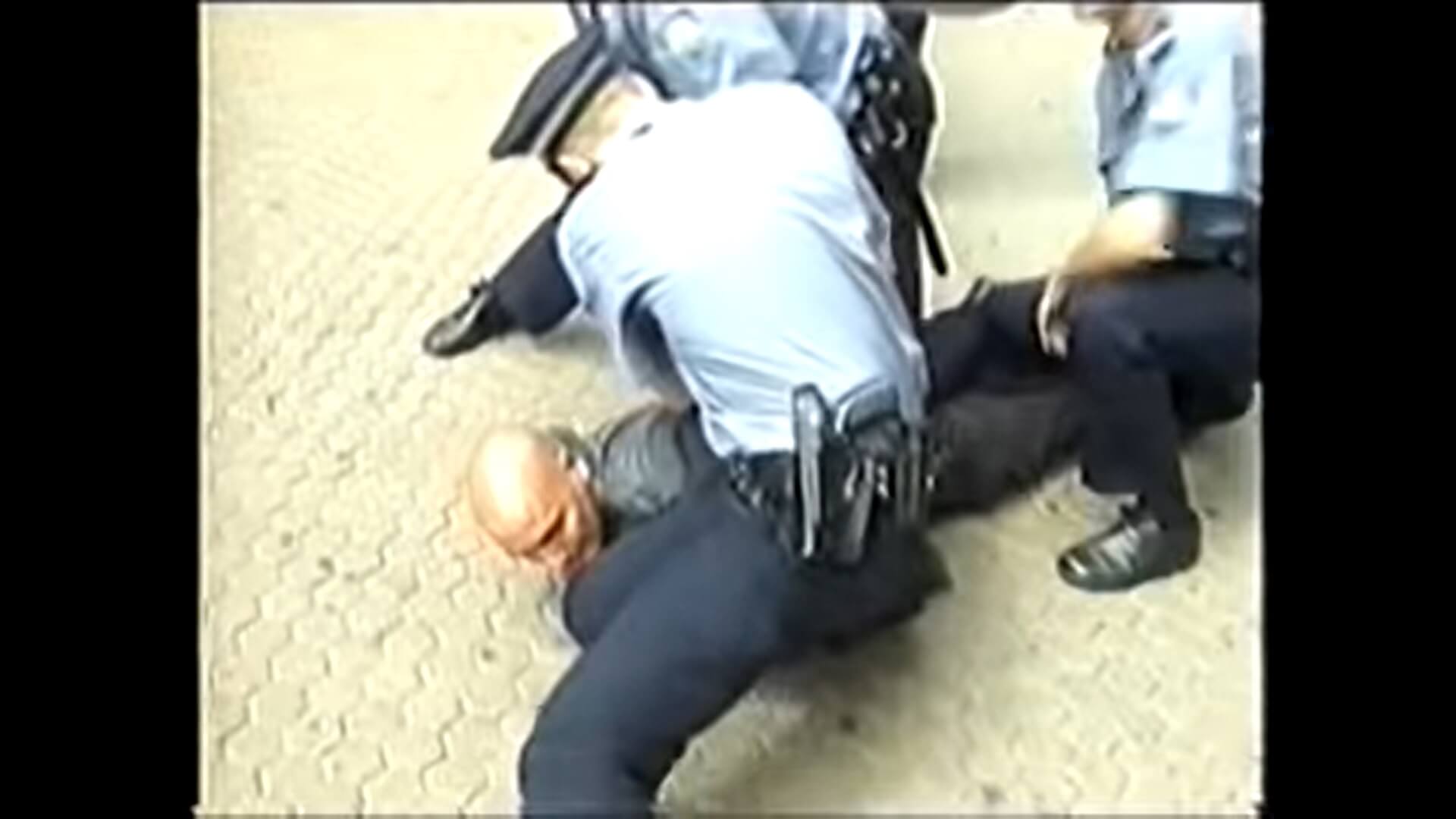
Police arresting violent skinhead at the first Zagreb Pride in 2002, screenshot / Zagreb pride
But, at least for Zagreb, the situation got better and more open. Today, pride is the forthcoming celebration of love and freedom, and entire families can be seen to join the picnic at Ribnjak park to teach their children tolerance and that people are not sick or different from others because of their sexual preference. Other larger cities in Croatia, such as Split, slowly but surely, do follow that path too, and Rijeka, the pinnacle of liberal Croatia, is also a very gay-friendly city.
Of course, a political counterstrike is expected and quite strong. The first most notable one was the 2013 referendum, where it was voted that the Croatian constitution declares marriage as a „community between a man and woman“. The goal was to deny LGBTQ couples the same rights as enjoyed by straight people.
However, the bill on life partnership outplayed that attempt.
In the meantime, LGBTQ couples can also adopt children in Croatia, as Constitutional Court concluded that gay couples fostering children is not against the Croatian Constitution.
That decision and along with the general openness of Croatia towards LGBTQ was followed by a controversial carnival in Imotski where an effigy of a gay couple was burned. President Zoran Milanović demanded an apology from the organizers, and SDP's MP Arsen Bauk filed charges against the organizers.
Counting pluses and minuses, the report on Croatia being the 39th best country for LGBTQ visitors still seems to uphold. No changes for the better, but at least Croatia is still in the top third for this category of tourists.
Haters strike back
2020 and 2021 sadly saw the uprise of violence towards LGBTQ in the Croatian capital. Apart from the occasional tearing down or burning of the rainbow flag, Croatia was shocked with an attempt of burning a man in Maksimir Forest Park as well, with his sexual preference being the sole motive for the attack.
On the other side, this year's pride felt to start stronger than ever. The newly elected mayor Tomislav Tomašević joined the parade, along with stating that Zagreb is a city that is open to everyone. This year arranged a bit differently to adhere to corona measures; around 2500 participated in the event.
„Twenty of our prides made our city and our republic a better, more democratic, and joyous place for the life of all citizens“, was the main message of the 20th edition of Zagreb Pride.
As reported by Index.hr, the Zagreb Pride association representatives stated that the Croatian LGBTIQ community „became a powerful, responsible and self-aware part of the country, but that the fight isn't over“.
„Our constitution and our laws still do not include in a complete and fair way. Our streets and squares are still not free of hate. We didn't forget nor we will forget victims of homophobic and fascist rampage in this year and all previous years“, stated Zagreb Pride.
Sadly, while Pride itself went without issues, participants of the pride who walked the streets of Zagreb after pride with rainbow flags faced a series of physical attacks on several locations in Zagreb.
A week ahead of Pride, conservative MOST Party parliament member Nikola Grmoja complained that commercials displayed during EURO 2020 commercials were LGBTQ propaganda and that kids need to be protected from it and announced that he might include it in his anti-pedophile package. Grmoja's statement caused strong disagreements among the Croatian public, with several people (including celebrities) teasing him that if he wants to start battling pedophilia, he should start from church (as Grmoja is quite clerical). Božo Petrov, president of the MOST party, added more fuel to the fire when he supported Grmoja, stating that „minorities can't dictate what my children can learn in school“. He added that minorities need to be aware that they are minorities and that „we tolerate that," sparking more enrage from the public, with many comparing MOST to the controversial Hungarian Prime Minister Viktor Orban.
Zagreb Pride linked the post-Pride physical attacks with Petrov and Grmoja's public statements, and Petrov and Grmoja announced they would sue Zagreb Pride for slender.
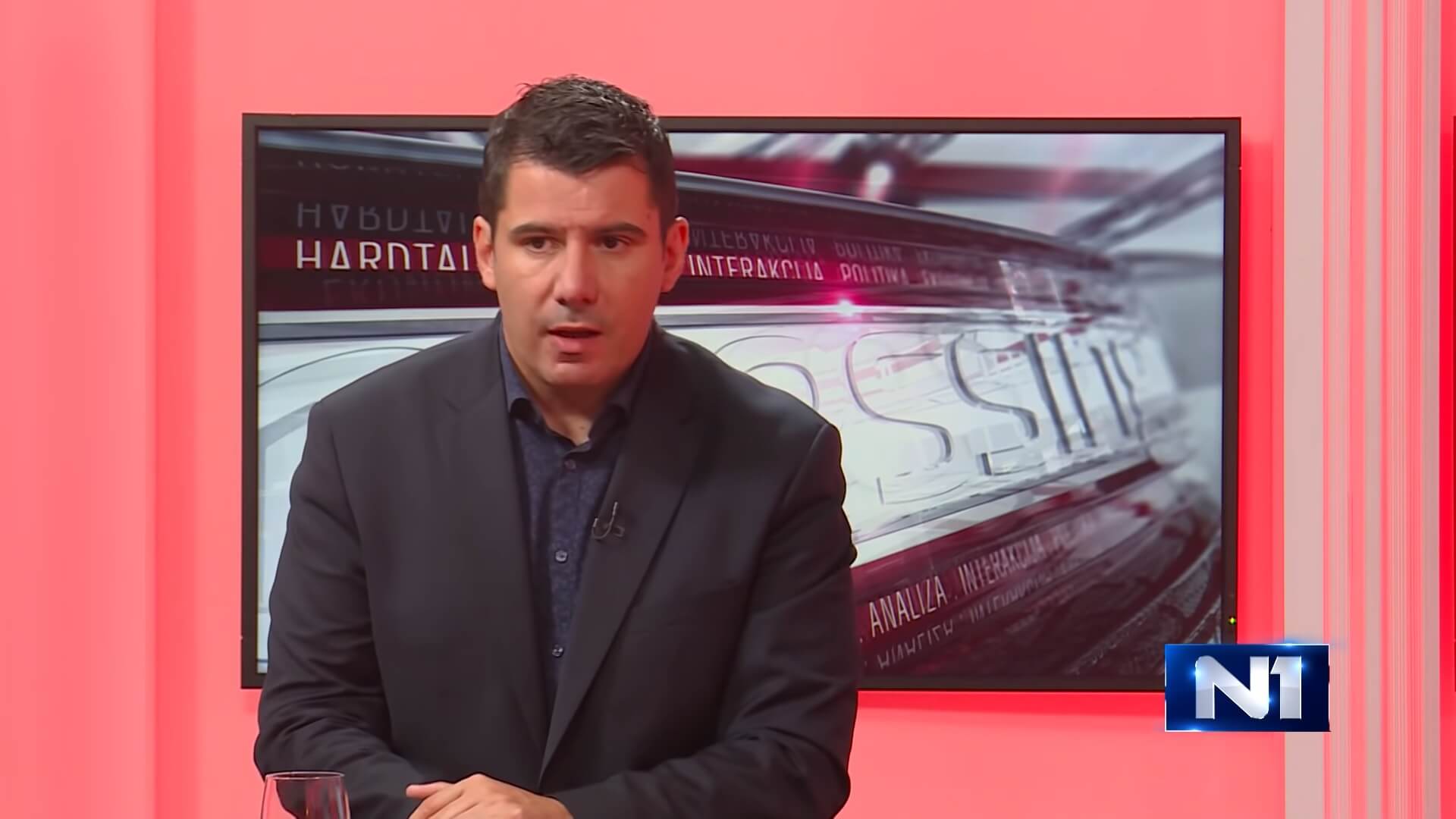
Nikola Grmoja, screenshot N1
The Law: "Gay is OK". Popular opinion: "Do it in your homes, not on the streets".
In this political escalation, what does the average Croatian think? Looking at the comments on social networks, it seems the majority of Croatians don't mind gays being gays and living how they like (even if they are not always happy with legal rights the LGBTQ community received). But, one sentiment in that „tolerance“ is particularly worrying.
„Live in your house however you want it. You don't have to wave around, like its a best thing ever“, said one of the online comments on Index.hr beneath the news on Petrov and Grmoja.
So it seems the public does not understand why Pride is important. First of all, as evident, the political climate is such that the battle for equality truly isn't over in Croatia, and Pride is the best way for the community to express what issues LGBTQ still face in Croatia. Additionally, pride month is also educational and supportive, and public presence show to other people who feel the same that they are not alone, as they might feel lonely and unable to find people who feel the same in everyday life.
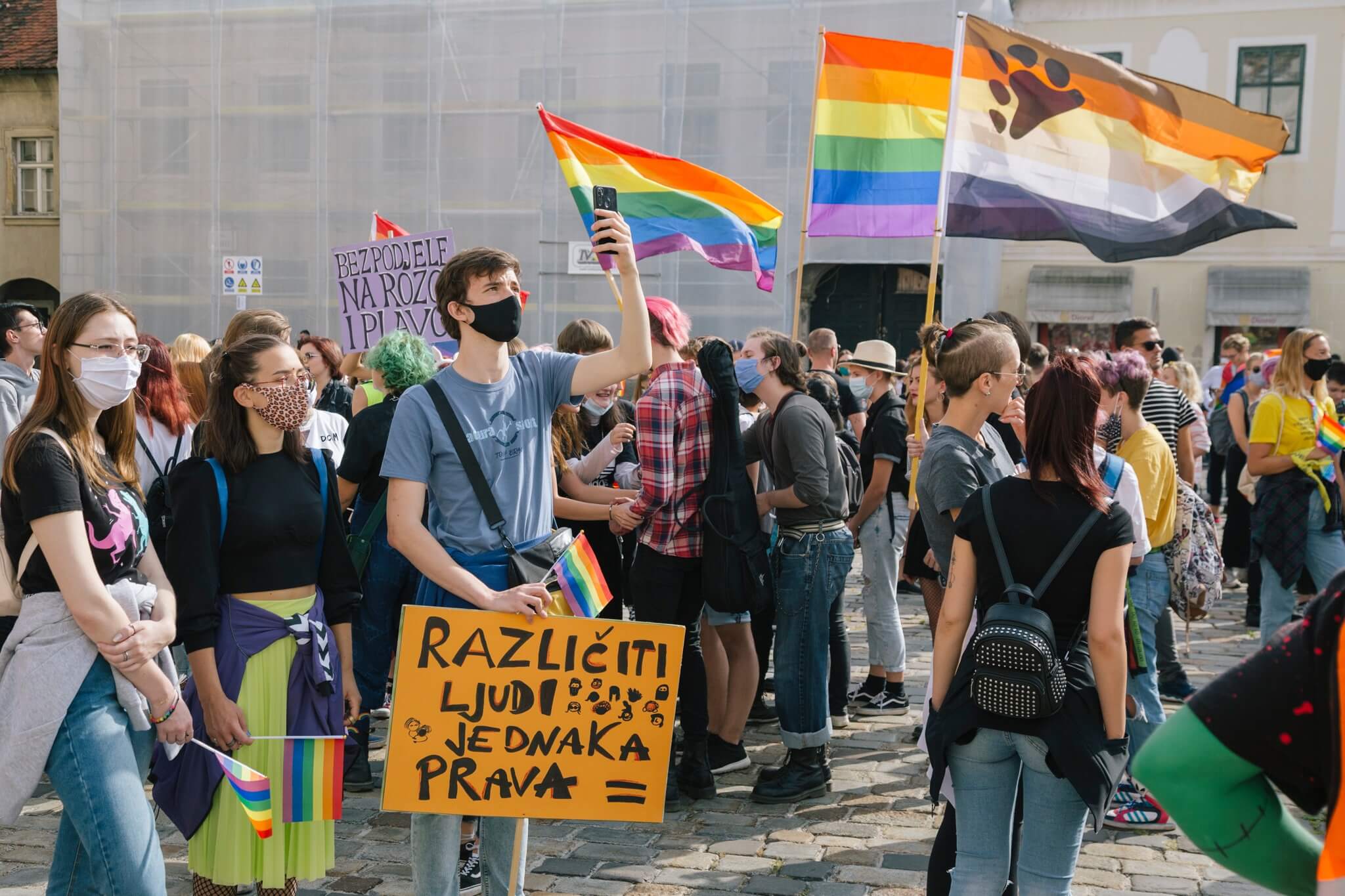
© Zagreb Pride
But, even if the law and constitution give the same rights and solves the problem of intolerance of LGBTQ people completely, does that mean that Pride should then be canceled? Well, Croatia won its independence and the war in the nineties. Does that mean we should stop commemorating the Homeland War? Or is it nice to honor and celebrate the victory and triumph over all obstacles Croatia had to face in its independence? Pride is a cultural, commemorative event honoring those who were or still are victims and oppressed for their sexual preference, either in Croatia or in the world. Croatia is a democratic country. Every group, national, ethnical, racial, religious, etc. should have the right to gather and honor its heroes. The right to gather and honor its tragedies and their dates and connect with other people who feel the same. If political elites are so concerned with keeping Croatians in Croatia, then they can't afford to discriminate or attack part of Croatian society solely based on their sexual preference. A preference that, unlike being violent or intolerable, can't be chosen.
Learn more about LGBT rights in Croatia and what LGBT tourists should know on our TC page.
For more about LGBT in Croatia, follow TCN's dedicated page.
First Zagreb Digital Literacy Centre for Blind and Visually Impaired Opened
July the 5th, 2021 - The very first Zagreb Digital Literacy Centre for the blind and visually impaired has opened its doors as a digital Croatia becomes more available and accessible for all parts of society.
As Iva Badanjak/Novac writes, the very first Zagreb Digital Literacy Centre for the blind and visually impaired was put into function this week and is worth 165,000 kuna. Located within the premises of the Association of the Blind in Zagreb, which has about 1,500 members, this project will provide them with digital education that will make their daily lives easier and strengthen their competencies when entering the labour market.
The president of the Zagreb Association of the Blind, Branimir Sutalo, said at the opening of this unique centre that this project should serve as an example of good practice for other associations of the blind and visually impaired.
In addition to Braille literacy, the modern age has placed digital literacy before the community of the blind and visually impaired as a fundamental precondition for independence and full involvement in the life of the wider community.
"Our community is facing a serious financial challenge because the necessary IT equipment costs up to 25,000 kuna per user," Sutalo said.
Apriori World was in charge of preparing the strategic guidelines to raise funds to equip the Zagreb Digital Literacy Centre in accordance with the standards of use for computers and laptops with the addition of a Braille keyboard.
After completing the educational programme, ten blind and partially sighted people are currently actively participating in browsing and then certifying the websites of various institutions and companies, which comply with the WCAG (Web Content Accessibility Guidelines) standards of the EU Directive on Accessibility of Websites. This project opens up further opportunities for creating a new model of social entrepreneurship.
"The Zagreb Digital Literacy centre has the task of sending out a clear message to all those who don't yet have a website adapted to the WCAG standard, which is the direction of the European directive and the law that has already entered into force, to do so. Blind and partially sighted people will still live in darkness, darkness in the sense of accessing information, if this isn't done,'' said a volunteer of the Association, Danijel Koletic.
Back in 2016, the European Parliament and the Council of the EU adopted the Directive on the accessibility of websites and mobile applications of public sector bodies. That directive states that the right of persons with disabilities and the elderly to participate and be integrated into social and cultural life is inextricably linked to the provision of accessible audiovisual media services.
Creating accessible websites and mobile applications results in a better experience for all users, not just people with disabilities. Accessibility is manifested in the ability to perceive, operability, comprehensibility and stability of content.
When a website makes certain minor modifications, such as allowing it to listen to text when the lighting is not optimal or to read subtitles when the sound is inaudible, it makes life easier for all EU citizens, and all EU member states had to align their national legislation with the EU Directive by September 2018.
For more, follow our lifestyle section.
Interview with Veronica Mulhall, First Zagreb Digital Nomad Ambassador
July 5, 2021 - Zagreb has its first digital nomad ambassador. A first interview with Veronica Mulhall, who will be resident in the Croatian capital for the month of July.
After an inspiring 7 days during Zagreb Digital Nomad Week 2021, the second component of the project kicked off on July 1 with the arrival of the first winner of the Zagreb Digital Nomad Ambassador Project. Following on from the week, 6 digital nomads will be spending a calendar month in the capital until the end of the year and working with Zagreb Tourist Board in developing its digital nomad tourism strategy.
The first winner, Veronica Mulhall from the USA, accompanied by her partner Julian, arrived on July 1, to take up residence at Doma Zagreb Aparthotel, as previously reported by TCN. Veronica was kind enough to find time for this email interview as she begins her month in Zagreb.
1. First of all, congratulations on becoming the first Zagreb Digital Nomad Ambassador. Tell us a little about yourself so we can get to know you a little.
I am a strategic communicator on a mission to connect people.
Personally, I am drawn to experiencing new things, taking adventures, and I have found a passion for travel because every time I go somewhere I learn something new about the place and about myself.
I have visited over seventy countries and counting, always wanting to learn more about food system growth, art sector enhancement, and heritage site preservation. And, with all the travel, I ground myself in my yoga practice, creating my own art, and exploring the place and nature.
As a marketing professional, I lead projects and programs for startups, social enterprises, NGOs, and development organizations in emerging markets. I currently work for a pan-African social enterprise within the African Leadership Group, guided by the mission to transform Africa by developing 3M ethical and entrepreneurial leaders by 2035.
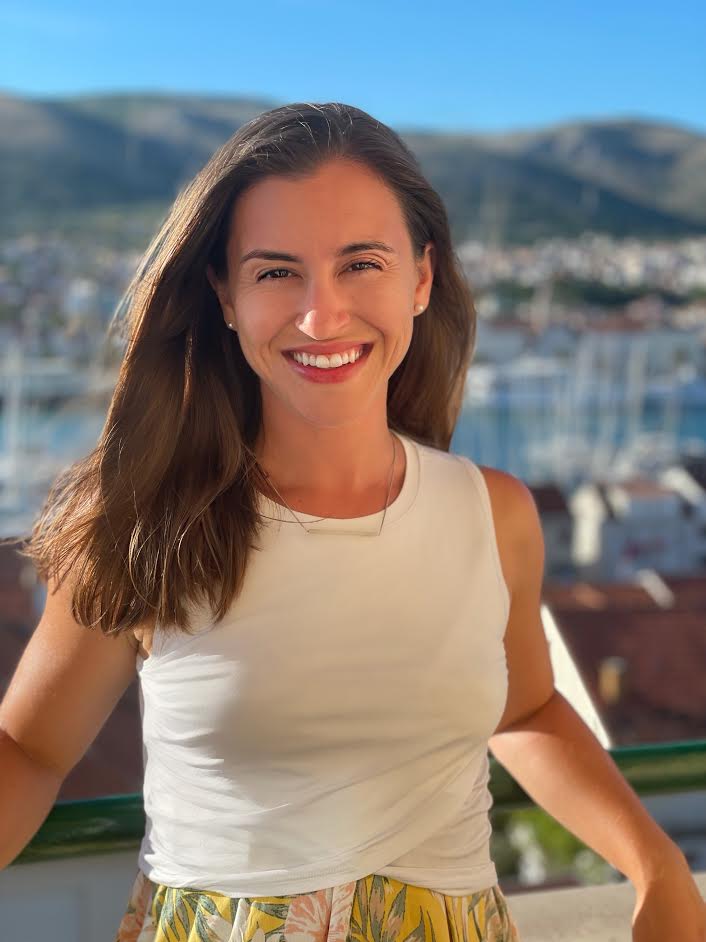
2. How did you hear about the competition, and why did you decide to apply?
When I arrived in Croatia, I was searching online for coworking and found the competition on the Saltwater Nomads's website. When I noticed the location was Zagreb, I reflected on my own travel plans in Croatia. Originally, I was going to stay by the coast, like many tourists and digital nomads. Wondering if I was missing something by overlooking the capital, I was compelled to learn more about Zagreb.
I was shocked at how I was drawn to the city. It felt so creative. The downtown appeared walkable and full of outdoor restaurants. There were many parks and green spaces. A few hours of researching later, I realized a had to take the chance and apply to the competition.
3. Your reaction to being selected?
It was a combination of excitement, surprise, and gratitude. With all competitions, you never think you will be selected. I was overjoyed when I saw the email that I was selected for this amazing opportunity.

4. How well do you know Croatia and Zagreb in particular?
This trip is my first time in Croatia. As Croatia has become a popular destination, friends told me to visit, but recommendations were focused only on Croatia's (beautiful) coastline. I enjoy cities with history and charm, so when learned more about Zagreb, it immediately caught my attention.
5. What excites you most about the month ahead?
There are so many things - the food, the museums, the history, the art, the parks - the list goes on. But, if I have to pick the one thing that excites me the most, it would be getting to know the people that call Zagreb home.
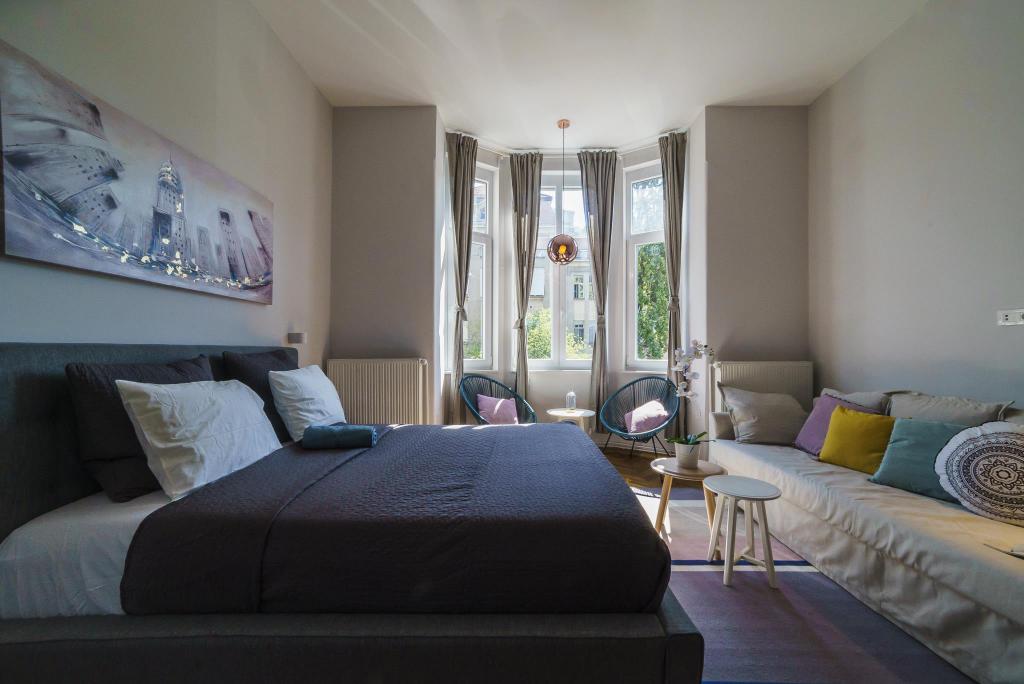
(Doma Zagreb Aparthotel - 4-star luxury in central Zagreb)
6. Are there any particular activities in Zagreb that you would like to get involved in?
I'm currently in a Master's program for working professionals studying Art and Cultural Management. With this in mind, I see why Zegrab is getting more and more attention as a tourist destination and I am interested in learning more about the city's art and cultural planning and sustainable tourism efforts. Hopefully, I will be able to attend some of the events while I am here.
7. What are your expectations from the month, and what are you looking to get out of it?
Open to trying new things, I am looking to get out of my comfort zone.
I want to get an insider look at some of the many hidden gems that make Zagreb special. So, I will need some local assistance. Readers: Do you have a favorite cafe? Can I come with you to a dance class? What about an outdoor concert? Know where to find the best gelato? Can you point me to a relaxing city park?
Email me at This email address is being protected from spambots. You need JavaScript enabled to view it. or DM me on Instagram @veronicamulhall.

8. You obviously lead a nomadic life and are well-traveled. What makes Croatia an interesting digital nomad destination for you?
Croatia has the key elements many digital nomads look for when picking a destination: great places to work, affordable and diverse restaurants, rich history and culture, and outstanding nature. Even in the short time that I have been within the country, it is clear, from the thousands of islands to the waterfalls at Plitvice Lakes, the walls of Dubrovnik to the capital of Zagreb, the hype is well deserved.
Would you like to be a Zagreb Digital Nomad Ambassador? Applications are open until November, with the last ambassador taking up residence on December 1. Find out more here.
For more on Zagreb Digital Nomad Week 2021 & Zagreb Digital Nomad Ambassador Project, visit the Saltwater Nomads website.
For the latest news and features about digital nomads in Croatia, follow the dedicated TCN section.
Highlights of the Week: 5 Big Events in Croatia from June 28-July 4
June 3, 2021 - TCN's highlights of the week. A look at the events in Croatia from June 28 through the selection of TCN's reporter Ivor Kruljac.
EURO 2020 elimination and Dario Šarić in the NBA finals. Zagreb witnessing a series of arrests related to corruption of Milan Bandić's reign and explosive device planted in Split. In the midst of it all, is COVID-19 vaccination on its way to becoming obligatory and not optional? You may prefer the good news or the bad news, but here is both, as another week in Croatia comes to an end.
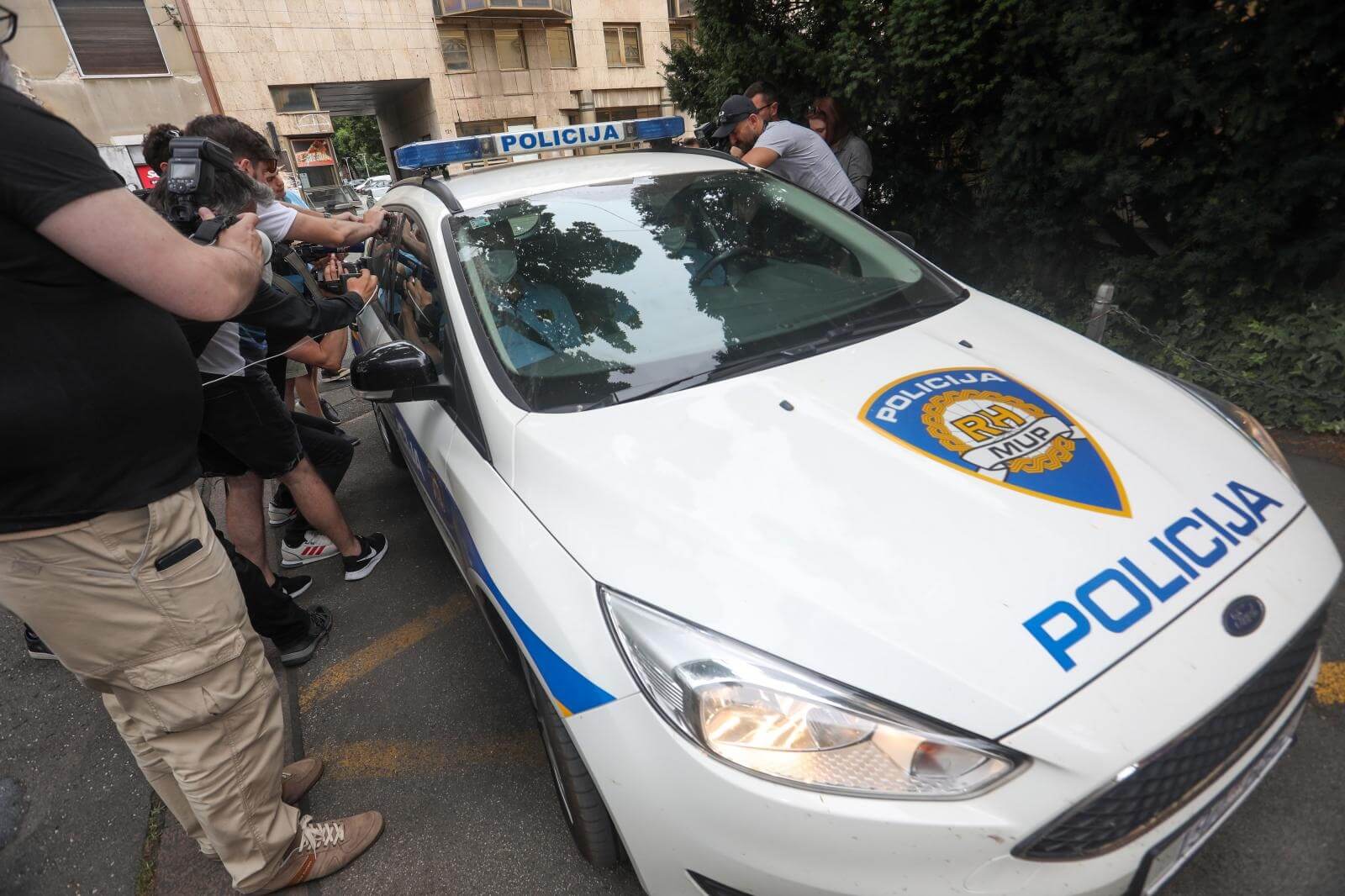
© Marin Tironi / PIXSELL
Highlights of the week: Uskok arresting Zagreb entrepreneurs and associates of former mayor Milan Bandić
The Office of Zagreb Mayor Tomislav Tomašević said on Wednesday that a preliminary investigation by members of the Office of the Chief State Prosecutor and the Office for Suppression of Corruption and Organised Crime (USKOK) started at the city administration offices at 6 am on Wednesday.
As TCN wrote, several people were arrested on suspicion of corruption, including the director-general of the HRT public broadcaster, Kazimir Bačić, Andrea Šulentić, and Ana Stavljenić-Rukavina. Both Šulentić and Rukavina were directors in Zagreb administration offices and close associates of former mayor Milan bandić. At the same time, details Bandić's heavy corruption (suspected and known publicly earlier) came to light.
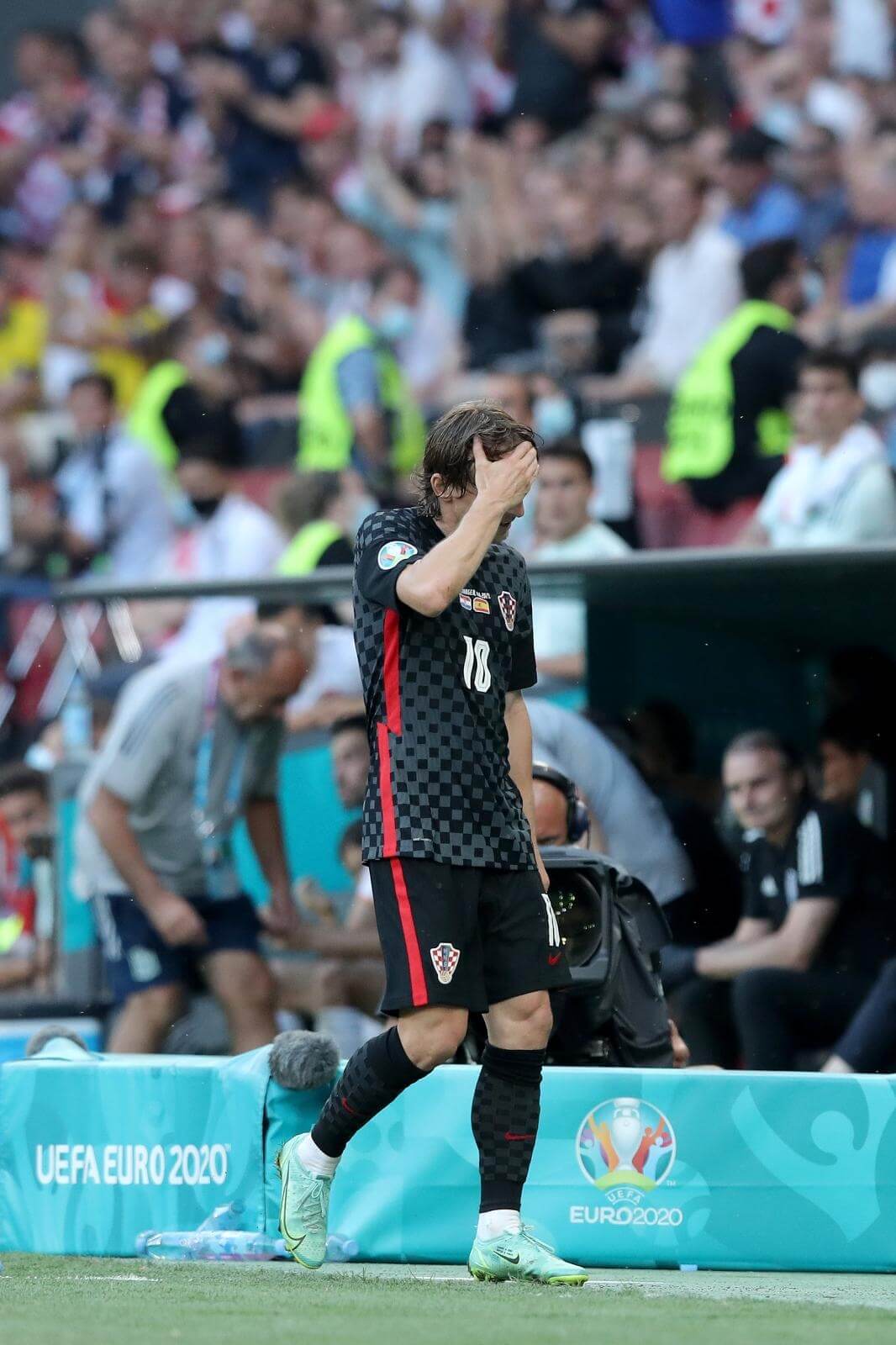
© Goran Stanzl / PIXSELL
Highlights of the week: Croatia eliminated from Euro 2020 after losing to Spain
Croatia and Spain met in Copenhagen on Monday for their EURO 2020 round of 16 match. It was a decent effort from Croatia, but not enough. Despite the Spain own goal in the 20th minute, the distraction as Rebić went to change his boots saw Spain even the score. The score towards the end of regular time went to 3:1 for Spain, but Croatia managed to lower to 3:2 and finally, in the added time, Pašalić scored for 3:3.
But, the euphoria was ruined for Croatia as in extra time, Morata earned Spain 4:3, and by 103rd minute, the total and final score was 5:3 for Spain. It was one of the more intense games on Euro so far as both teams show incredible spirit and persistence.
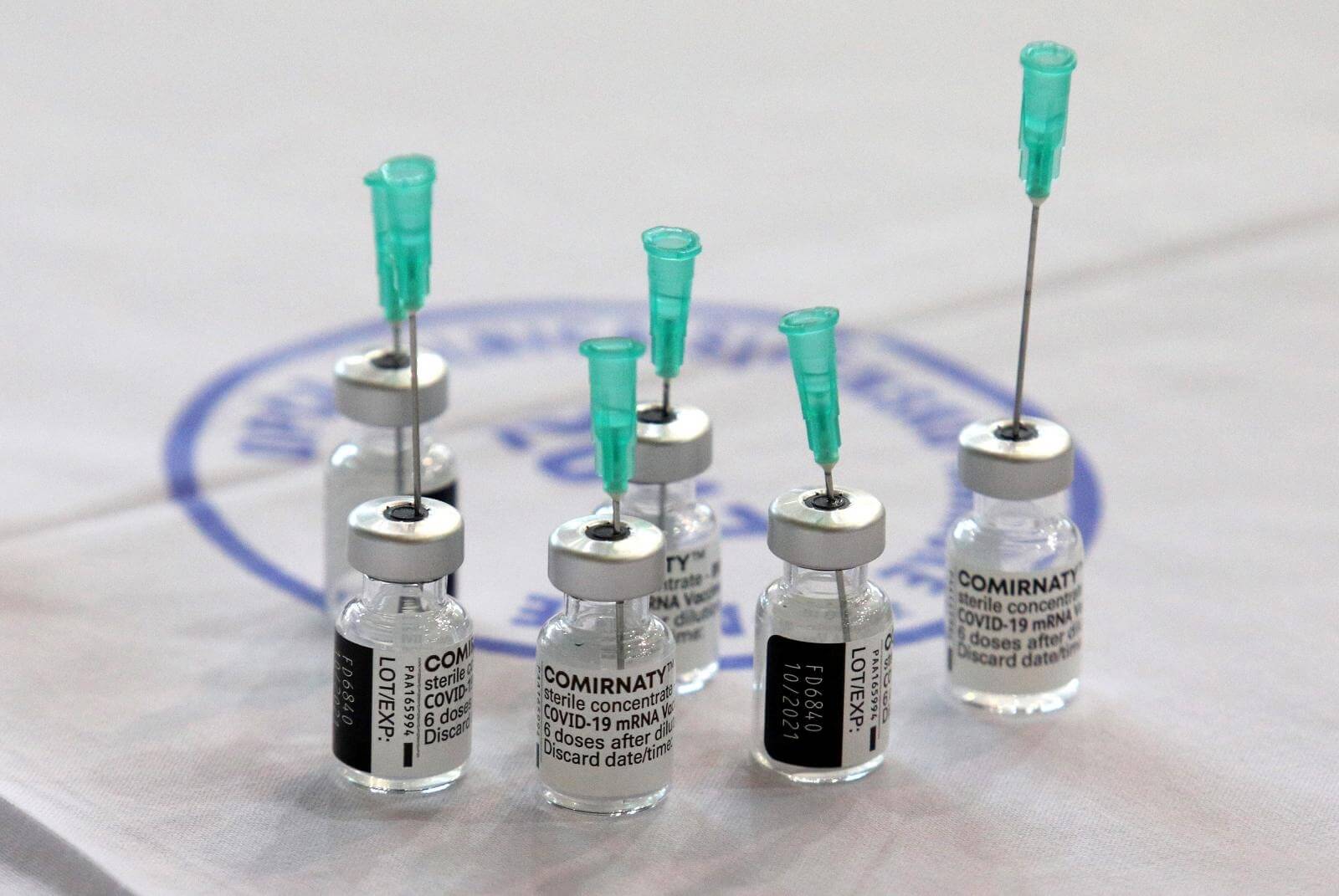
© Dusko Jaramaz / PIXSELL
Highlights of the week: Opposition parties against vaccination being required for job-keeping payments
The Social Democratic Party (SDP) called on Prime Minister Andrej Plenković on Thursday not to make vaccination a requirement for job-keeping payments, while the Most party said business owners were being blackmailed into vaccination.
As TCN reported, SDP leader Peđa Grbin elaborated his dissatisfaction via social networks.
"In Croatia, mandatory vaccination is possible, but the obligation is first established under the law on the protection of the population and then regulated and worked out under Immunisation Rules and the Mandatory Vaccination Programme. The obligation of vaccination can't be imposed in another way, notably not by linking support for entrepreneurs with vaccination," SDP president Grbin posted on Facebook.
"Most is against entrepreneurs, who are being forced into vaccination through blackmail, saving the government's mindless epidemic policy", stated the Most party on its official Twitter account. They added that Croatia was stuck with over 300,000 surplus vaccines because of poor government moves and communication omissions.
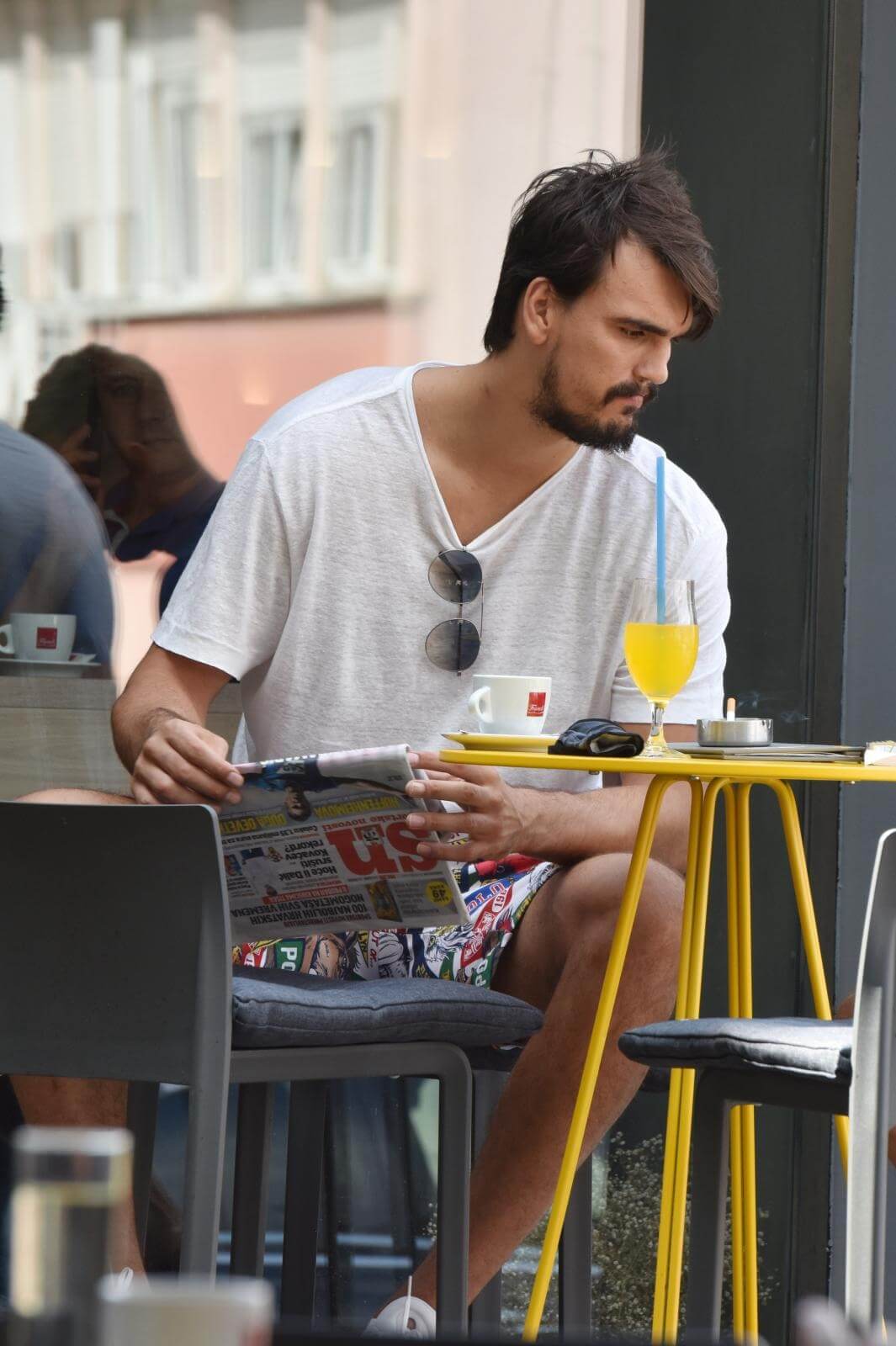
© Hrvoje Jelavic / PIXSELL
Highlights of the week: Dario Šarić becomes 5th Croatian basketballer in the NBA finals
Šibenik's Dario Šarić is the 5th Croatian basketball player to reach the NBA finals! As TCN wrote, Šarić became only the fifth Croatian basketball player in the NBA league finals, joining the company of Dražen Petrović, Toni Kukoč, Žan Tabak, and Ante Žižić. Šarić plays for Phoenix Suns. They topped the Los Angeles Clippers 4-2 in the NBA Western Conference Finals. Apart from basketball, Šarić also likes to enjoy sipping coffee on Šibenik cafe terraces, as portrayed in the photo.
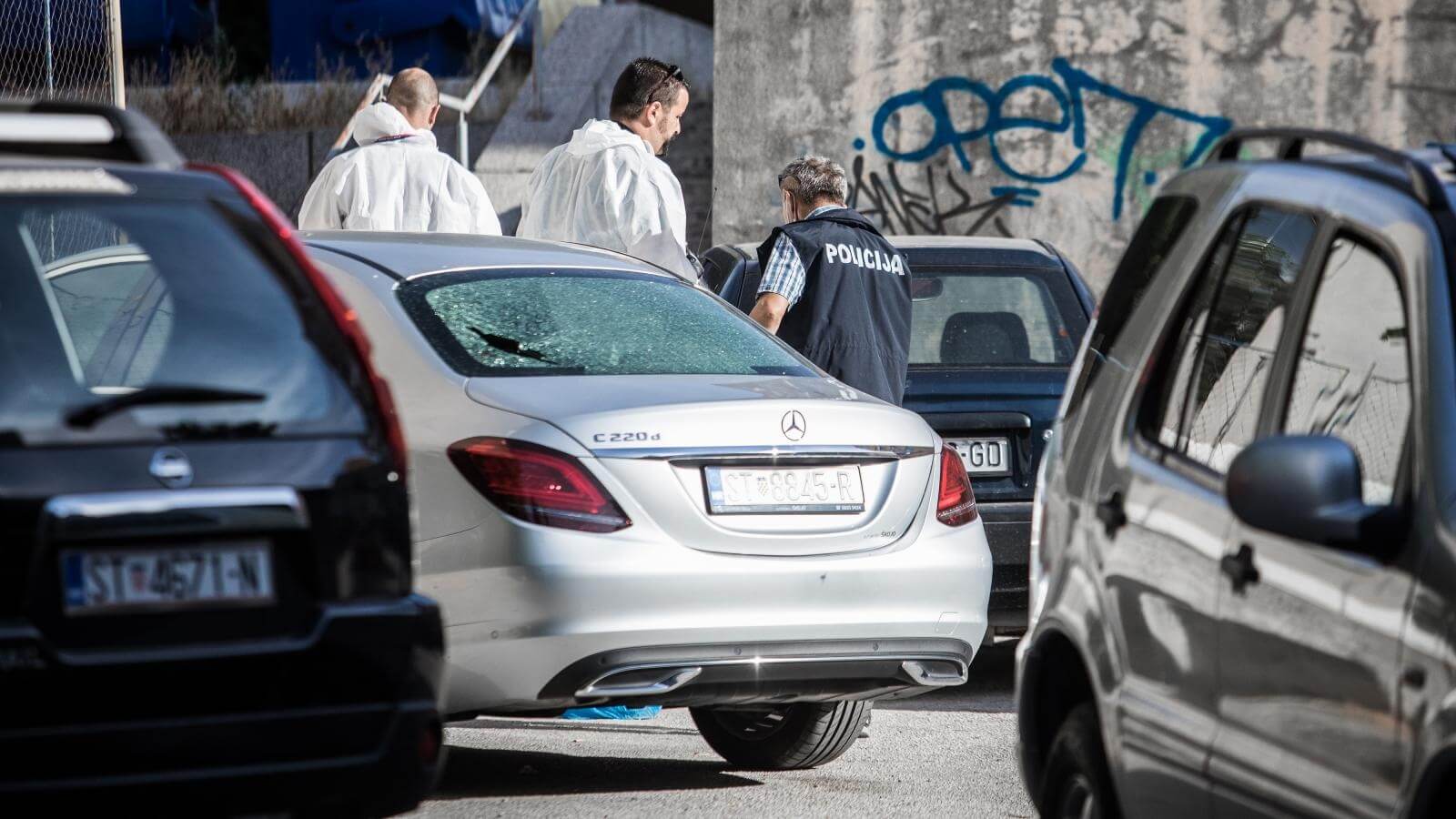
© Milan Sabic / PIXSELL
Highlights of the week: Bomb planted in Split. One person injured
In the night from Thursday to Friday, an unknown person placed an explosive device underneath a vehicle. The explosion damaged six cars, and one person required medical attention. The investigation is ongoing since Friday morning.
To learn more about Croatia, have a look at our TC website.
For more about news in Croatia, follow TCN's dedicated page.


